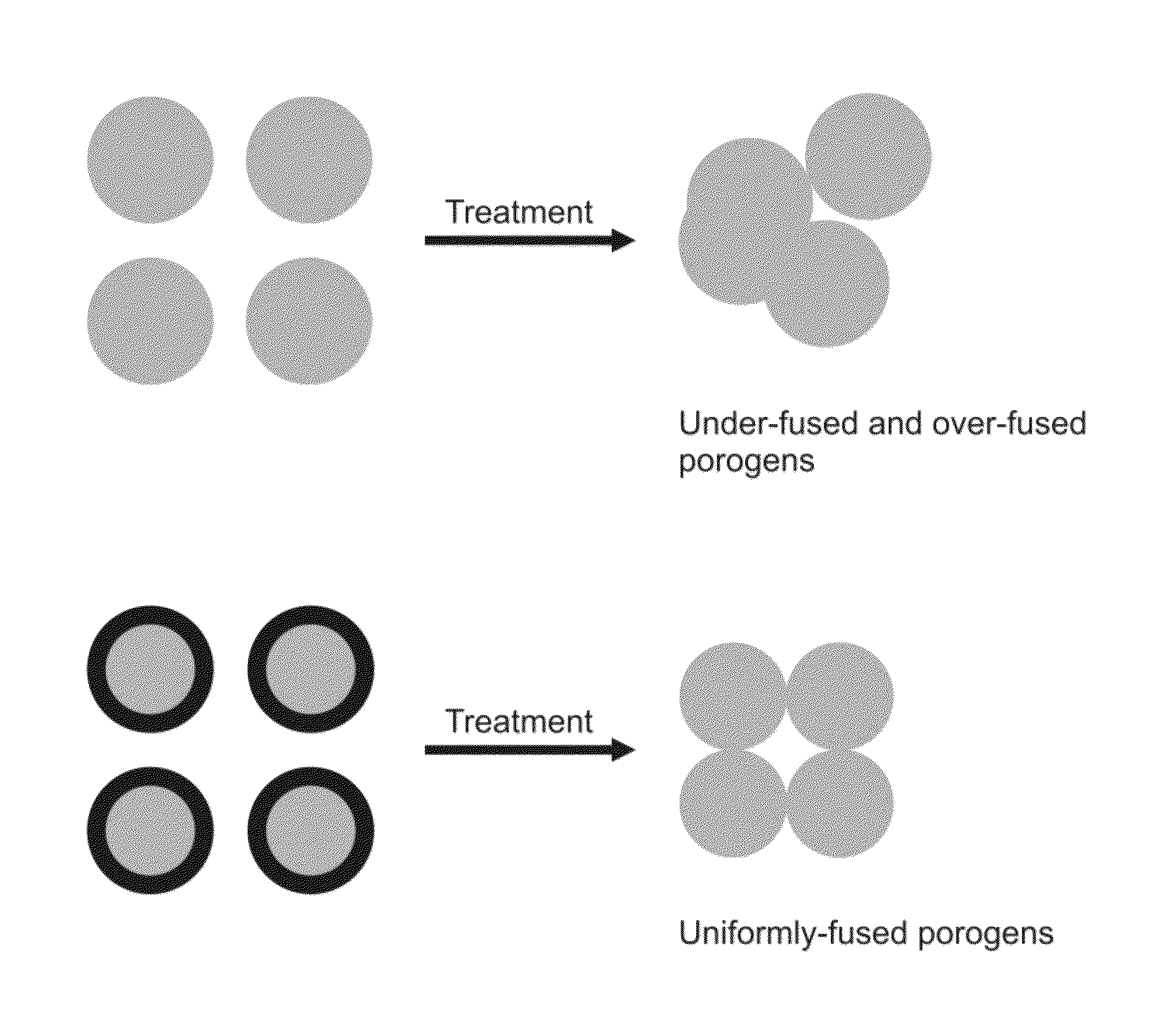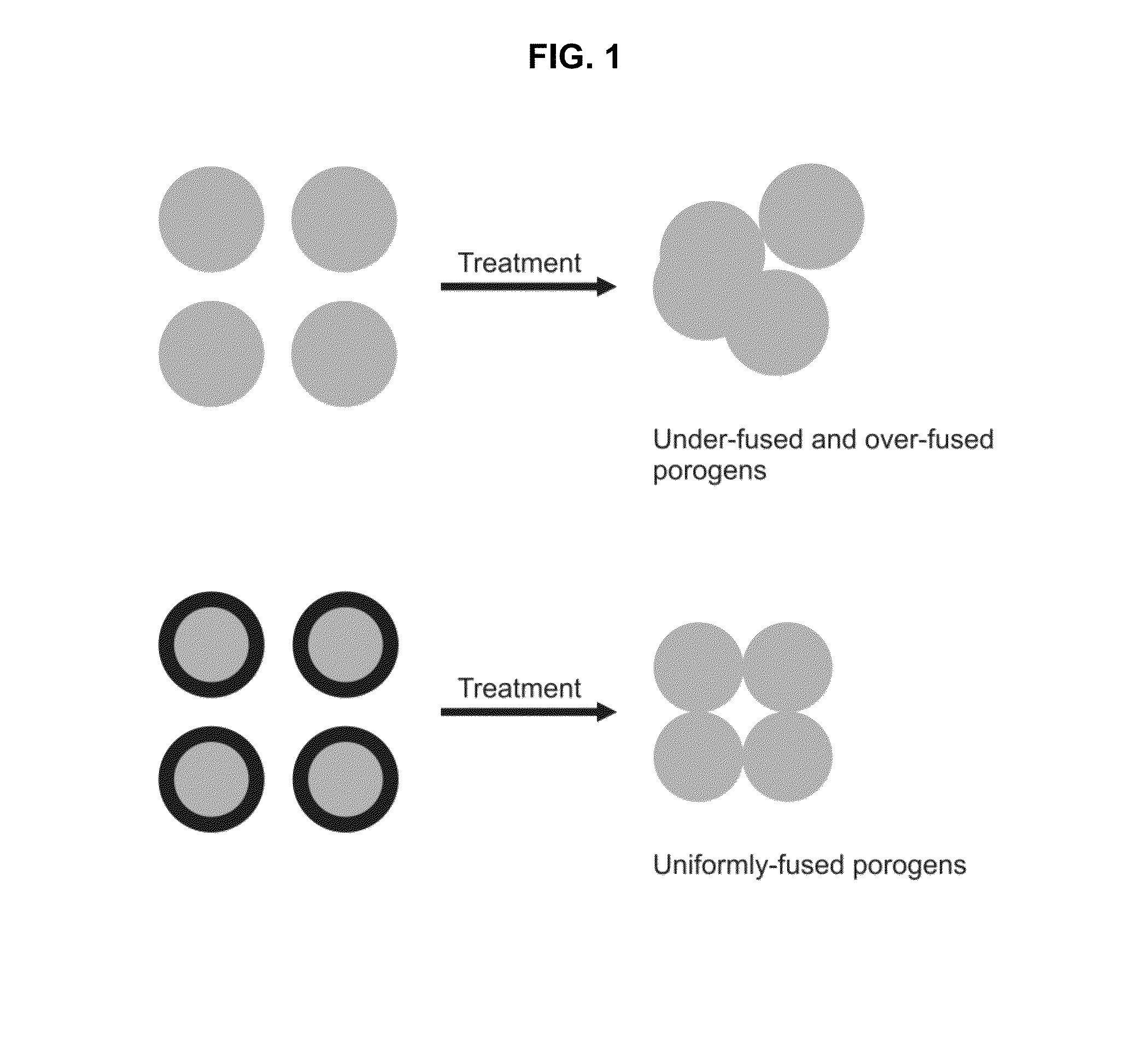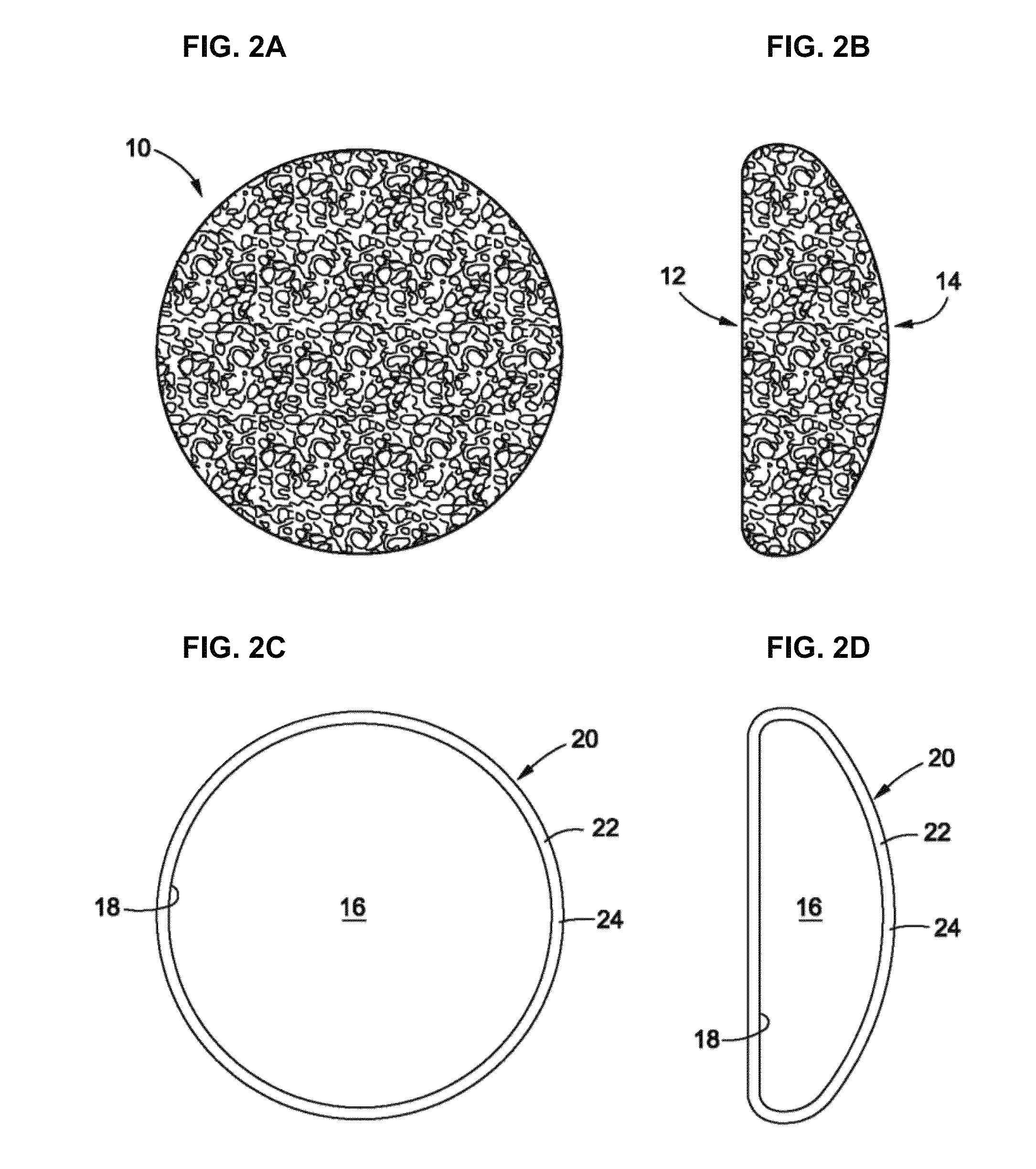Porogen compositions, method of making and uses
a technology of porogen composition and composition method, applied in the field of porogen composition method and use, can solve the problems of insufficient number of porogen fusions, formation of solid blocks, and uniform fusion
- Summary
- Abstract
- Description
- Claims
- Application Information
AI Technical Summary
Benefits of technology
Problems solved by technology
Method used
Image
Examples
example 1
A Method of Making a Porous Material Sheet
[0152]This example illustrates how to make a sheet of porous material using the porogen compositions disclosed in the present specification.
[0153]To coat porogens with a substance, an appropriate amount of porogens comprising a sugar core of about 335 μm and a polyethylene glycol shell of about 15 μm were mixed with an appropriate amount of about 35% (v / v) silicon in xylene (PN-3206-1; NuSil Technology LLC, Carpinteria, Calif.). In other experiments, the porogen composition used were porogens comprising a sugar core of about 335 μm and a polyethylene glycol shell of about 53 μm, porogens comprising a sugar core of about 390 μm and a polyethylene glycol shell of about 83 μm, or porogens comprising a sugar core of about 460 μm and a polyethylene glycol shell of about 104 μm. The mixture was filtered through a 43 μm sieve to remove the excess silicone and was poured into an about 20 cm×20 cm square mold coated with a non-stick surface.
[0154]To ...
example 2
A Method of Making a Biocompatible Implantable Device Comprising a Porous Material
[0157]This example illustrates how to make a biocompatible implantable device comprising a porous material formed using the porogen compositions disclosed in the present specification.
[0158]Sheets of porous material comprising an elastomer matrix defining an interconnected array of pores is obtained as described in Example 1.
[0159]To attach a porous material to a biocompatible implantable device, a first porous material sheet is coated with a thin layer of silicone and then placed in the bottom cavity of a mold, adhesive side up. A biocompatible implantable device is then placed on top of the material surface coated with the adhesive. A second porous material sheet is then coated with a thin layer of silicone and applied to the uncovered surface of the biocompatible implantable device. The top piece of the mold cavity is then fixed in place pressing the two material sheets together creating a uniform i...
example 3
A Method of Making a Porous Material Shell
[0161]This example illustrates how to make a porous material shell using the porogen compositions disclosed in the present specification.
[0162]To coat porogens with a substance, an appropriate amount of a porogen composition comprising a sugar core of about 335 μm and a polyethylene glycol shell of about 53 μm are mixed with an appropriate amount of about 35% (v / v) silicon in xylene (PN-3206-1; NuSil Technology LLC, Carpinteria, Calif.). In other experiments, the porogen composition used are porogens comprising a sugar core of about 335 μm and a polyethylene glycol shell of about 65 μm, porogens comprising a sugar core of about 320 μm and a polyethylene glycol shell of about 30 μm, or porogens comprising a sugar core of about 350 μm and a polyethylene glycol shell of about 50 μm. The mixture is filtered through a 43 μm sieve to remove the excess silicone.
[0163]To pour a substance coated porogen mixture into a mold, the filtered elastomer coa...
PUM
 Login to View More
Login to View More Abstract
Description
Claims
Application Information
 Login to View More
Login to View More - R&D
- Intellectual Property
- Life Sciences
- Materials
- Tech Scout
- Unparalleled Data Quality
- Higher Quality Content
- 60% Fewer Hallucinations
Browse by: Latest US Patents, China's latest patents, Technical Efficacy Thesaurus, Application Domain, Technology Topic, Popular Technical Reports.
© 2025 PatSnap. All rights reserved.Legal|Privacy policy|Modern Slavery Act Transparency Statement|Sitemap|About US| Contact US: help@patsnap.com



